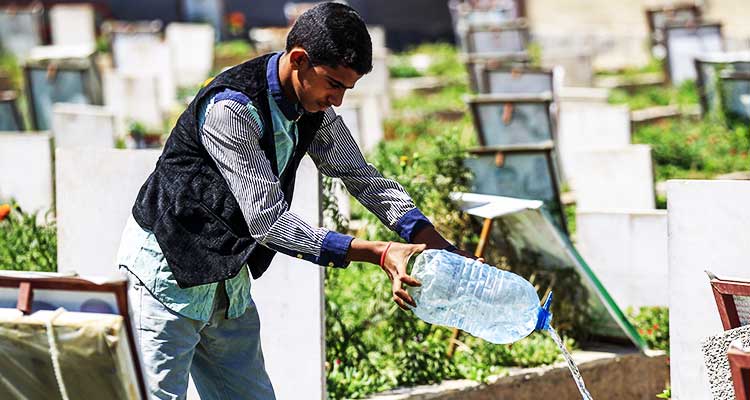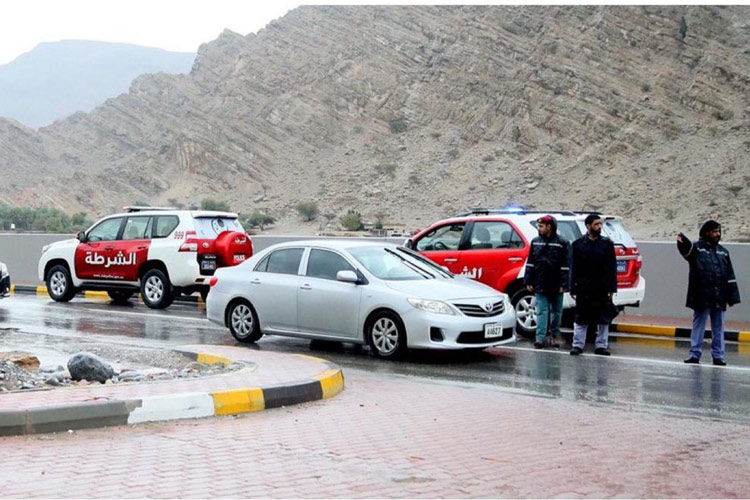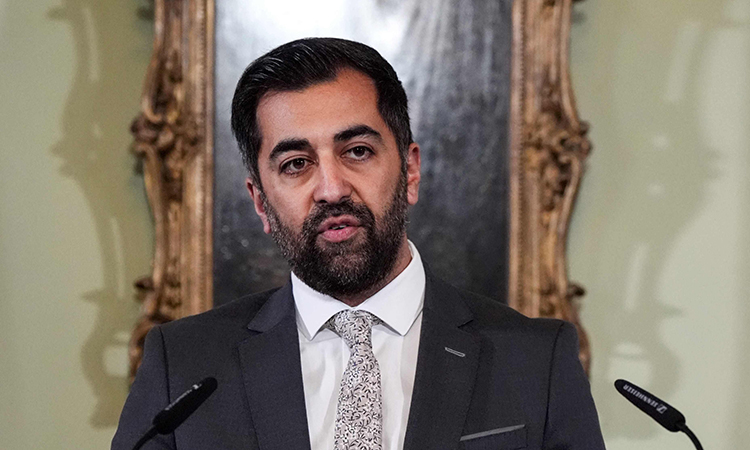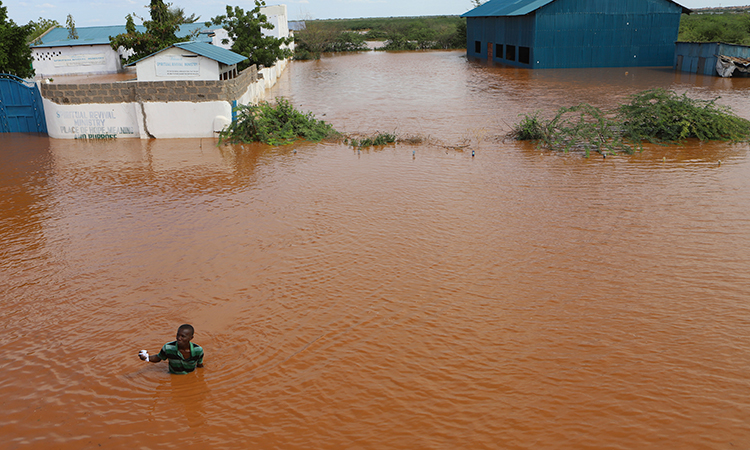After school, Yemen's children seek work at the cemetery
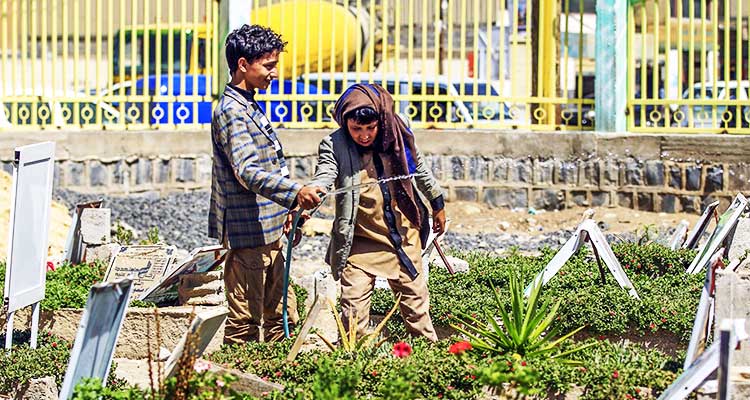
Yemeni children water plants and clean tombstones in a cemetery in the capital Sanaa.
SANAA: Barefoot in a blue striped shirt, Ahmed al-Hamadi walks from school to a cemetery in the Yemeni capital where he works to help his family survive.
The 13-year-old makes his way through the cemetery, where graves are cramped together and overgrown with weeds.
Hauling gallons of water on his tiny shoulders, he waters plants and sprinkles tombstones to rid them of the Sanaa dust for a modest payment from the families of the deceased.
"We usually wait for funeral processions to work. If no one has died, we just hang around the graves and play around here."
Ahmed is among millions of children struggling to stay in school in Yemen.
Children most at risk
UNICEF, the UN children's fund, called Yemen a "living hell for children" in 2018, with a whopping 80 percent of minors in need of aid.
The agency estimates that two million Yemeni children, out of an eligible seven million, are out of school as the war grinds into its fifth year.
Many families have had no choice but to rely on their children for income -- sometimes as little as a few dollars a month.
Three years ago, Atiqa Mohammed was an officer in the Yemeni military. Today, she runs a little grocery store and more often than not her shelves are empty.
She had to turn a group of children away one March afternoon, with neither bread nor milk to sell them.
"The war has devoured everything," she told AFP. "I don't want much. Bread and tea would be enough, as long as it's an honest living."
A Yemeni boy waters plants and cleans tombstones in a cemetery in the capital Sana.
'Crowded with visitors'
Three-quarters of Yemen's population of 29 million are in need of humanitarian aid, with upwards of 10 million on the brink of mass starvation, according to the UN.
UNICEF stepped in this month, disbursing the equivalent of $50 per month to some 100,000 educators.
Ahmed is one of the luckier ones. His school still opens its doors to pupils in Sanaa.
But when his father could not find work, it was up to him to help his family. He first tried street peddling before turning to the cemetery as a last resort.
Fifteen-year-old Yasser al-Arbahi also found himself working at the cemetery after his father had a stroke, putting his dreams of becoming a doctor on hold.
His days have become routine: wake up, attend class until noon, then head to the cemetery after lunch.
"If there's a grave that needs to be cleaned, I'll spray it down. Then on Fridays, I make sure I have water to sell to the families who come to visit the graves.
Some 10,000 people have been killed in Yemen over the past four years, according to the World Health Organization, although rights groups say the toll could be five times higher.
By the tombstones in Sanaa, Yasser pays particular attention to cacti and flowers planted on the graves, taking the time to water them all.
He appeared thankful for the work: "Cemeteries are crowded with visitors.
AFP
